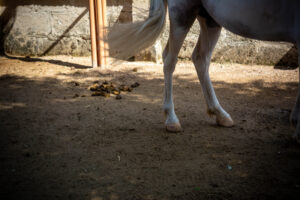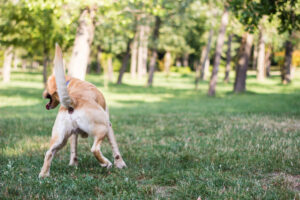“That sound you’re hearing is your future self thanking you,” my doctor said, reviewing the MRI of my lower back. The bulging disc at L4-L5 wasn’t catastrophic, but it wasn’t going away either. “How did you injure it?” she asked. My answer surprised us both: “Leaves. Just… leaves.”
Ten years of stubbornly managing my quarter-acre property’s seasonal debris had finally caught up with me. What began as weekend warrior soreness in my thirties had graduated to a legitimate medical condition in my forties. The revelation forced me to reconsider my longstanding resistance to hiring a yard waste service – and opened my eyes to health dimensions I’d never considered.
The Hidden Physical Toll of DIY Yard Management

Keeping Your Yard Clean Is Good For Health
We rarely consider yard waste removal as a health decision, yet few regular household activities combine so many potentially problematic physical demands.
The Biomechanics We Don’t See Coming
My physical therapist Emma put it bluntly during my second session: “Your spine wasn’t designed for what you’re asking it to do.” She explained that raking creates a particularly challenging combination of rotation, extension, and asymmetrical loading that few people execute properly. “It’s not just about bending your knees,” she noted. “Most people rake predominantly with their dominant side, creating muscular imbalances that compound over time.”
This seemingly minor observation illuminated years of mysterious one-sided back spasms that always appeared the day after yard work. After decades of maintaining my property, I’d created a structural imbalance that subtly affected my posture even when I wasn’t doing yard work.
Even more surprising was learning how the timing of yard waste management compounds its physical risks. “Weekend warriors create the perfect injury storm,” Emma explained. “You transition from sitting at a desk all week to sudden, sustained physical exertion, often working too long to ‘just finish it’ while your form deteriorates with fatigue.”
The most compelling insight came when she pointed out the cumulative nature of these micro-injuries. “Your back isn’t just responding to today’s yard work – it’s responding to every improper lift and twist you’ve subjected it to over decades. The body keeps the score.”
The Respiratory Equation
Two months into my back rehabilitation, I developed a persistent cough after an ambitious spring cleanup. My allergist identified the culprit: mold spores from the previous autumn’s partially decomposed leaves that had overwintered beneath the melting snow. “Yard debris creates its own microbiome,” he explained. “Disturbing it without proper protection is essentially giving yourself a concentrated dose of environmental allergens.”
He showed me a fascinating microscope slide of dust collected from my yard waste. The diverse collection of mold spores, pollen remnants, and bacterial particles made visible what my lungs had been silently processing. “Most people attribute these symptoms to ‘spring allergies’ without connecting them to their yard activities,” he noted. What I had dismissed as coincidental seasonal allergies was directly connected to my yard maintenance habits.
Mental Bandwidth: The Most Underrated Health Resource
The physical considerations initially drove my decision to hire a service, but the psychological benefits emerged as unexpectedly powerful.
Cognitive Landscapes and Decision Fatigue
My neighbor Karen, a cognitive psychologist, offered perspective over our shared fence line as the service cleared both our properties one afternoon. “What you’re buying isn’t just physical labor – it’s mental bandwidth,” she observed. “Each seasonal task represents multiple decision points that consume cognitive resources whether you consciously register them or not.”
She explained how seemingly simple questions – When should I start the fall cleanup? Is it too wet to rake today? Should I focus on the front yard or backyard first? – create what psychologists call decision fatigue. “These micro-decisions accumulate, depleting the same mental resources you need for important work and family choices.”
The concept resonated deeply. For years, I’d felt a subtle background anxiety tracking leaf drop patterns, weekend weather forecasts, and the optimal timing for yard waste management. The professional service eliminated not just the physical task but this entire category of background processing that had been quietly consuming mental bandwidth.
Time Reconsidered
“We need to stop pretending time is just time,” my father wisely noted when I mentioned feeling guilty about outsourcing what previous generations handled themselves. “An hour of your life at 70 is not the same as an hour at 40 or 30. Spending current health to save money is rarely a good exchange.”
His perspective shifted my entire calculus. The hours I reclaimed weren’t just being converted to leisure – they were being reinvested in high-value physical activities that strengthened my core (preventing further back issues), deepened family connections, and built resilience through proper rest and recovery. The yard waste service hadn’t just purchased time; it had purchased the right kind of time.
Broader Horizons: Community and Ecological Health
The decision that began as personal health protection revealed wider dimensions I hadn’t anticipated.
The Professional Difference
“We’re not just removing debris – we’re managing the health of your landscape ecosystem,” explained Miguel, my service provider, during an initial consultation. He pointed out how improper yard waste handling can create breeding grounds for invasive species, disease vectors for plants, and unnecessary chemical interventions when natural materials aren’t properly cycled.
His team’s approach incorporated knowledge of local ecology that I’d never considered – from timing removals to disrupt pest life cycles to identifying problematic invasive plants before they established. These professional insights transformed yard waste from a disposal problem into a component of ecosystem management.
After a year of professional service, I’ve come to see this decision not merely as outsourcing a chore but as an investment in holistic health – protecting my aging body, reclaiming mental bandwidth, and contributing to environmental wellbeing. Sometimes the healthiest choice isn’t doing everything yourself, but recognizing when specific tasks are better handled by those equipped to do them properly.



